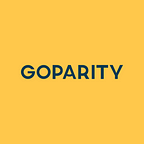Why solar power in Uganda is not just about decarbonization
It was an exciting day in the village. Children and adults alike gathered around the Dairy Cooperative, not to buy fresh milk and yogurt, but to be witnesses to the workers’ results. The Cooperative had installed solar panels and batteries to power the refrigerators!
With a mostly inexistent national power grid in Uganda, organizations rely on diesel generators to power appliances — a noisy, polluting, and expensive solution, whose alternative is simply not to have access to electricity.
Cold chain management in milk — the process of keeping the dairy products at correct temperatures to avoid spoiling — is a tricky business if you do not have a stable source of power — such as a working energy grid. However, with solar panel prices plummeting in the past 10 years, suddenly this new paradigm is available to all these small players. The only thing missing is capital to invest.
But in everyone’s eyes at the village that day, the excitement was on the blueish sparkling solar panels and the silence of the diesel engine. As the workers closed the area with the fence and installed the low-consumption LED streetlights, to protect the installation from trespassers during the night, the crowd began to disperse.
Night came, and there was something new in town. The dark night had a few new lights! The saleswomen sat under the gentle white light and sold their wares. For the first time in their life, they felt safe, on the now illuminated roadside, passing cars could see them, and not risk being hit in the dark. And the children came back, to play a bit more with their friends under the lamps until they are called to sleep by their parents.
I am a white, urban, mechanical-engineer-by-training from Lisbon, Portugal; and my whole life I have been working in the Renewable Energy and Energy Efficiency sector. In November 2019, I joined GoParity as responsible for Project Acquisition, and for me, the Baitambogwe cooperative was just another PV-battery project, with its kilowatts of power and its Euros of investment. As the installation report came in, and the testimonies on the field from our partners at SolarPipo (a Netherlands-Uganda venture), Filip Goudsmit and Hashim Mutanje, when we discussed the deep impact the project had in the community, I had to stop for a while and think about the implications of it all, and how technology and money can be used for a greater good. There was something about it that reminded me of Peter Singer’s Effective Altruism course, how we can measure the impact of our actions, and the foundational question that we should ask: where can I do the most good with the same resources?
The Baitambogwe is not just another PV-battery project. It is a lighthouse for a community, centered on an essential good — dairy — that provides safety, brings people together, and creates value for the whole village.
At GoParity, we are thrilled to be part of this meaningful and impacting venture, aiming at replicating the success of Baitambogwe in many more dairy cooperatives in Uganda, and you can be part of this change too. Start now from 20€ by investing in our newly opened project in a Dairy Cooperative in Uganda!
